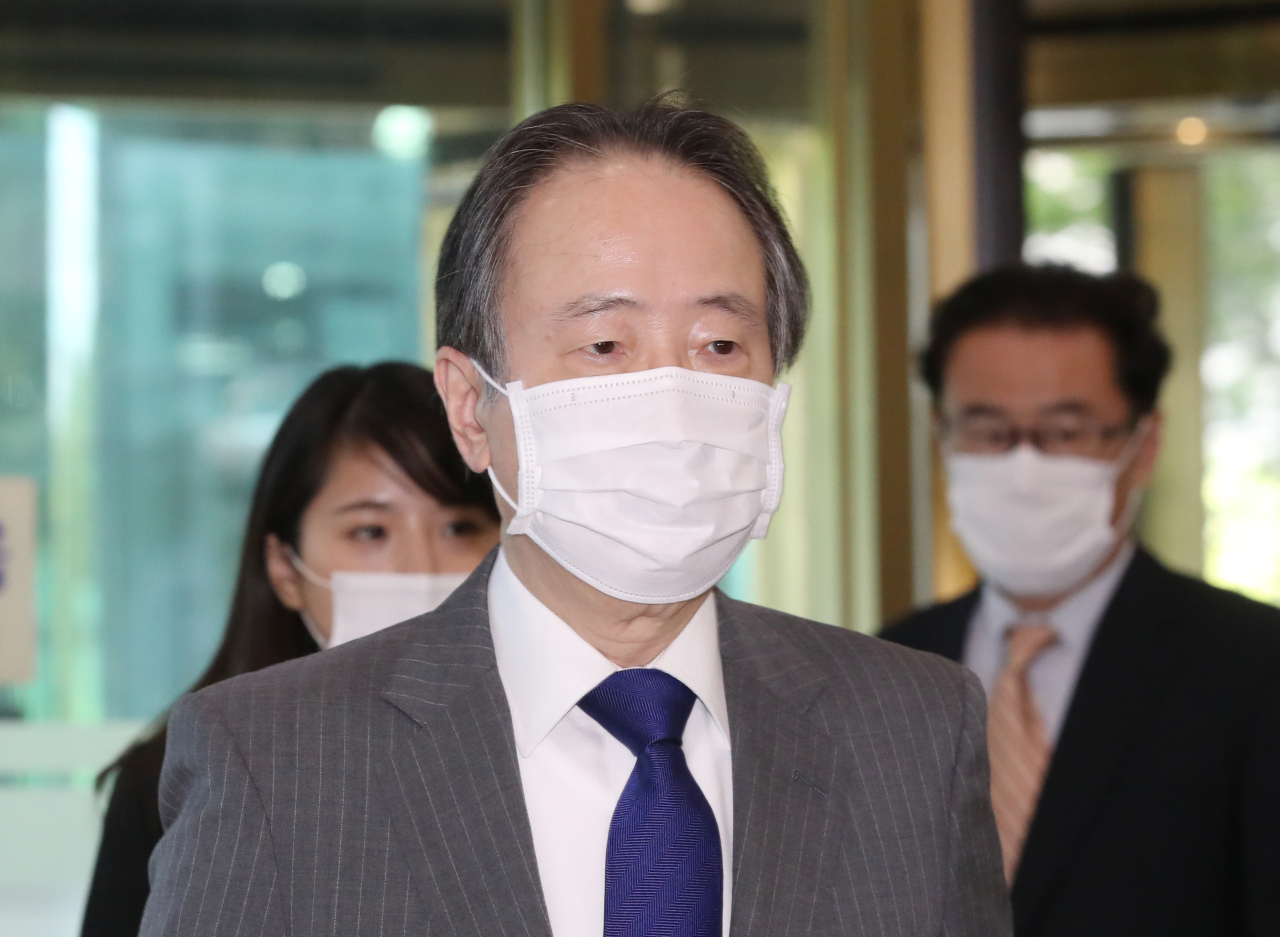Seoul slams Tokyo over ‘distortion’ of forced labor history at exhibition
By Ahn Sung-miPublished : June 15, 2020 - 15:45

South Korea on Monday expressed deep regret over Tokyo’s neglect of its pledge to commemorate victims of wartime forced labor at a newly opened facility celebrating its industrial revolution, and condemned the exhibitions as “distortion of facts.”
On Monday, the Industrial Heritage Information Center was opened to the public in Tokyo, introducing 23 modern Japanese Meiji-era sites added to the UNESCO World Heritage List, including the notorious Hashima Island, also known as Battleship Island, where many Koreans were forced into labor during World War II.
Japan had promised to showcase a display that honors Korean victims of forced labor when the sites were listed in 2015, but the new government-funded center is said to only feature exhibits highlighting Japan’s industrial accomplishments.
Second Vice Foreign Minister Lee Tae-ho called in Japanese Ambassador Koji Tomita in the afternoon to lodge an official protest over the issue and express regret regarding the distorted historical information.
“The Japanese government said it will respond to a recommendation by the World Heritage Committee ‘to take measures that allow an understanding that there were a large number of Koreans and others who were brought against their will and forced to worker under harsh conditions in the 1940s at some of the sites.’ But it is extremely regretful that the center contradicted such promises and include contents that distort historical facts completely,” said Kim In-chul, spokesman for the Foreign Ministry, in a statement.
He also expressed concern and disappointment that the exhibition has no appropriate information or references to commemorate the victims, though Japan had pledged its inclusion earlier as a purpose of setting up the center.
“The government severely urges Japan to fulfill the pledges it made with South Korea and the international community, and thoroughly observe the World Heritage Committee’s recommendation to ‘allow an understanding of the full history of each site.’”
Seoul had initially opposed inscribing Japanese sites to the World Heritage Sites, saying Koreans were forced into hard labor at seven of the 23 Meiji sites during the Japanese occupation of the country between 1910 and 1945.
Amid fierce public outcry here, the Japanese government had pledged it would take necessary steps, including establishing an information center to commemorate the forced labor victims and provide the full history of the sites.
By Ahn Sung-mi (sahn@heraldcorp.com)









![[Kim Seong-kon] Democracy and the future of South Korea](http://res.heraldm.com/phpwas/restmb_idxmake.php?idx=644&simg=/content/image/2024/04/16/20240416050802_0.jpg&u=)








![[KH Explains] Hyundai's full hybrid edge to pay off amid slow transition to pure EVs](http://res.heraldm.com/phpwas/restmb_idxmake.php?idx=652&simg=/content/image/2024/04/18/20240418050645_0.jpg&u=20240418181020)

![[Today’s K-pop] Zico drops snippet of collaboration with Jennie](http://res.heraldm.com/phpwas/restmb_idxmake.php?idx=642&simg=/content/image/2024/04/18/20240418050702_0.jpg&u=)